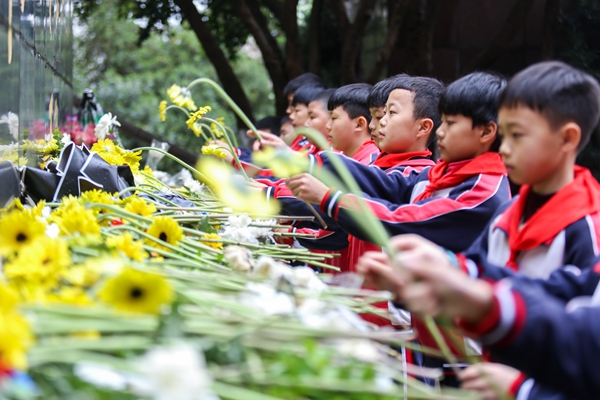The Qingming Festival, or Tomb Sweeping Festival, falls on April 4 this year. As one of the most traditional festivals in China, many traditions are still being passed on.

(Pupils in Huzhou, Zhejiang Province pay tribute to revolutionary martyrs ahead of the Qingming Festival.)
Since it is the most important day of sacrifice, both the Han and minority ethnic groups at this time offer sacrifices to their ancestors and clean the gravestones of the deceased. Families also offer food, flowers and favorites to the dead, then burn incense and paper money and bow before the memorial tablet.
Also known as Taqing Festival,meaning spring outing, it is a time for people to go out to enjoy April’s perfect spring air. It is also customaryto fly a kite during the Qingming Festival. For the ancients, flying a kite was not only a recreational activity, but also a superstitious practice: they thought flying a kite could fly away their bad luck. Thus, many people wrote down disasters and diseases they are scared of on the kite, and cut the string of the kite when the kite is high in the sky, which represents the kite taking away their illness and bad luck.
The relatively warm temperature in spring also makes planting trees a folk custom around Qingming.
